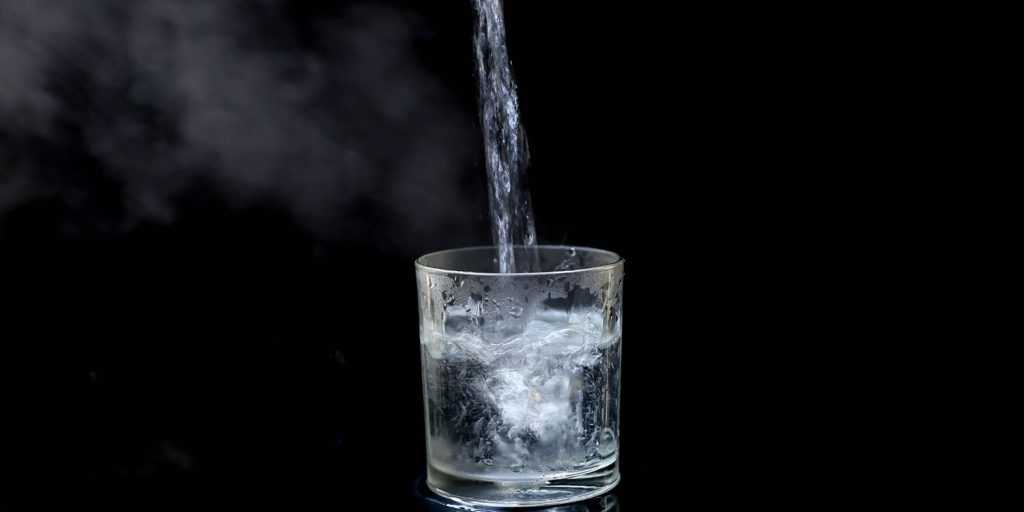Featured Blogs
The Daily Water Requirement for the Human Body
Water is the essence of life, making up about 60% of our body weight, and is essential for all bodily functions. From regulating body temperature to supporting cellular activity, water plays a crucial role in our daily health. However, many people often overlook the importance of staying hydrated and may not know exactly how much water they should drink each day. In this article, we’ll explore the daily water requirements for the human body and help you understand how to maintain proper hydration for better health.
1. Why is Water So Important for the Body?
Water serves many vital functions in the body, some of which include:
- Regulating body temperature: Water helps regulate body temperature through sweat and evaporation, keeping us cool when it’s hot and warm when it’s cold.
- Facilitating digestion: Water helps food move through the digestive tract and supports the absorption of nutrients.
- Removing waste: Through urine, sweat, and breathing, water helps the body eliminate toxins and waste products.
- Lubricating joints and tissues: Water is a key component of joint fluid and the fluid inside cells, reducing friction and promoting smooth movement.
- Supporting cellular functions: Every cell in the body requires water to perform its essential functions, as it serves as a medium for numerous biochemical reactions.
Clearly, water is not just the foundation of life—it’s essential for almost every aspect of how our bodies function.
2. Recommended Daily Water Intake
So, how much water do we actually need each day? The amount of water required can vary depending on factors such as age, gender, physical activity, climate, and health conditions. Here are some general recommendations:
- Adult men: Approximately 3.7 liters of water per day.
- Adult women: Approximately 2.7 liters of water per day.
These recommendations account for all sources of fluid, including beverages like water, juice, tea, and the water content in food. About 20% of our daily water intake comes from food, especially fruits, vegetables, and soups.
3. Are You Drinking Enough Water?
While the daily water requirement varies from person to person, there are a few signs you can look out for to gauge whether you’re adequately hydrated:
- Urine color: Clear or light yellow urine typically indicates good hydration. Dark yellow or amber-colored urine may be a sign of dehydration.
- Thirst: Feeling thirsty is a common sign of dehydration, but it usually indicates that you’re already slightly dehydrated. It’s important to drink water regularly, even before you feel thirsty.
- Dry skin: Dehydration can cause the skin to become dry, lose elasticity, and appear dull.
- Fatigue: If you feel unusually tired or sluggish, dehydration might be the cause, as it can impair your body’s normal functioning.
4. Factors Affecting Water Needs
In addition to age and gender, several other factors can influence how much water you need each day:
- Physical activity: When you exercise, your body loses more water through sweat, so if you have an active lifestyle or engage in intense physical activities, your water intake will increase.
- Climate conditions: Hot weather or humid environments cause the body to sweat more, leading to greater water loss. You’ll need more water to maintain proper hydration during these conditions.
- Health conditions: Illnesses like fever, vomiting, and diarrhea can cause increased fluid loss, so you may need to drink more water when you’re unwell. Certain medications can also affect your hydration needs.
- Pregnancy or breastfeeding: Pregnant and breastfeeding women need additional water to support the development of the baby and milk production.
5. How to Maintain Proper Hydration
- Drink water regularly: Make a habit of drinking water throughout the day, rather than waiting until you feel thirsty. You can set reminders to ensure you’re staying on track.
- Eat water-rich foods: Include water-rich foods like watermelon, cucumber, strawberries, and oranges in your diet. These foods can help supplement your daily water intake.
- Avoid sugary and caffeinated beverages: Sugary drinks and caffeine can cause increased urination, leading to more water loss. Opt for water or unsweetened tea whenever possible.
- Hydrate during exercise: Make sure to drink water before, during, and after exercise, especially after intense workouts. Sports drinks can help replenish lost electrolytes.
- Be mindful of climate changes: In hot or cold weather, it’s important to adjust your water intake to avoid dehydration caused by temperature fluctuations.
6. Tips for Drinking Water in Fun Ways
Sometimes, plain water can feel a little too bland. Here are a few fun ways to drink more water while enjoying different flavors:
- Infused water: Add fruits like lemon, orange, cucumber, or berries to your water for a refreshing, flavorful twist.
- Chilled water: On hot days, ice-cold water is not only refreshing but also helps cool you down.
- Herbal teas: Non-caffeinated herbal teas are a great alternative to plain water, offering both hydration and a soothing flavor.
Conclusion
Water is the foundation of good health, and staying hydrated is crucial for maintaining normal bodily functions, boosting energy levels, and aiding digestion. By drinking enough water each day based on your body’s needs and adjusting for factors like physical activity and climate, you can ensure that your hydration levels remain optimal.
Remember: Drinking water is not just a basic need—it’s a key step toward a healthy, vibrant life!


https://honda-fit.ru/forums/index.php?autocom=gallery&req=si&img=7036
zh3hht
https://myteana.ru/forums/index.php?autocom=gallery&req=si&img=6922
http://wish-club.ru/forums/index.php?autocom=gallery&req=si&img=5308
u8tvre
vn1v2s
sds9bt